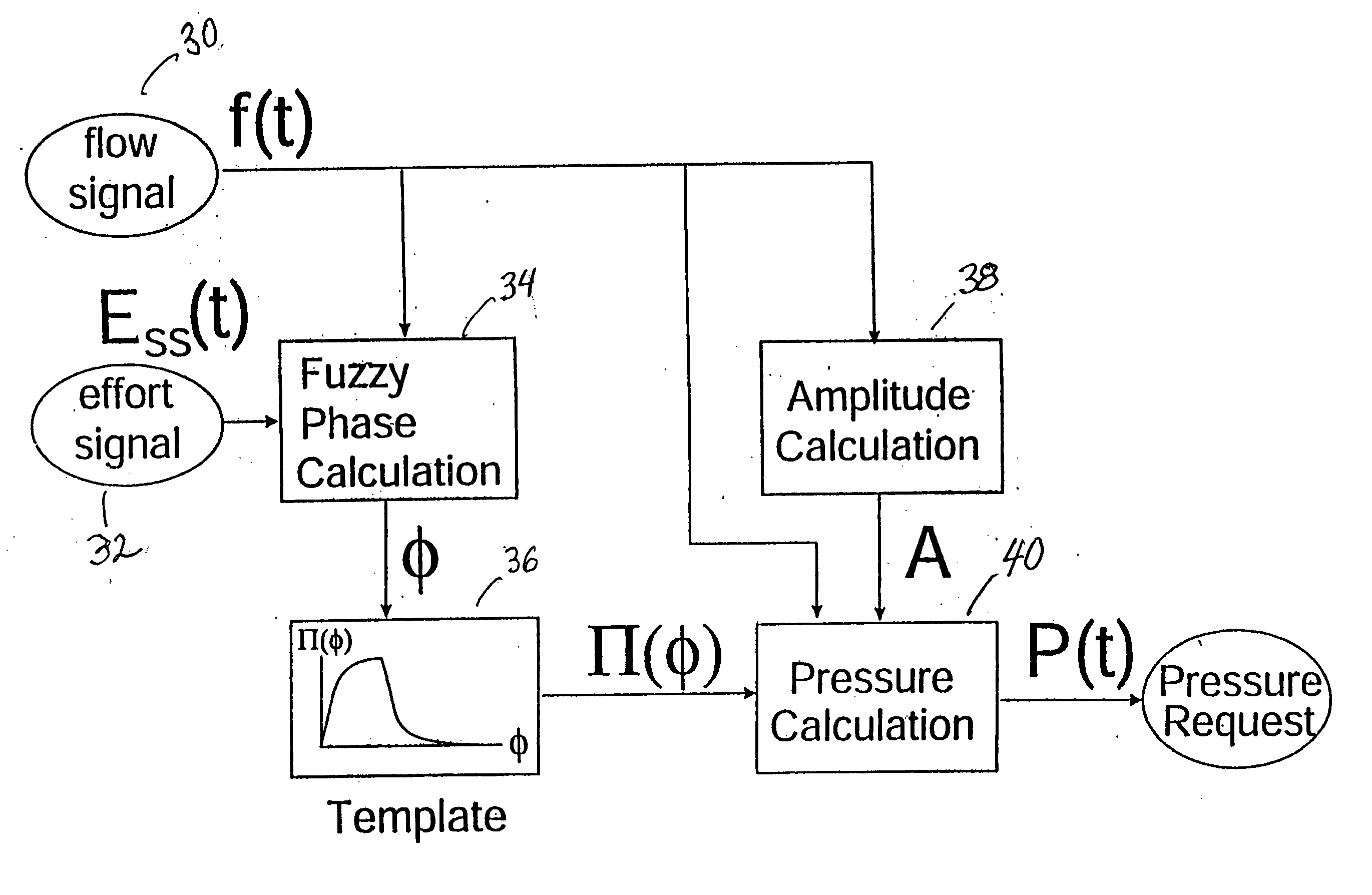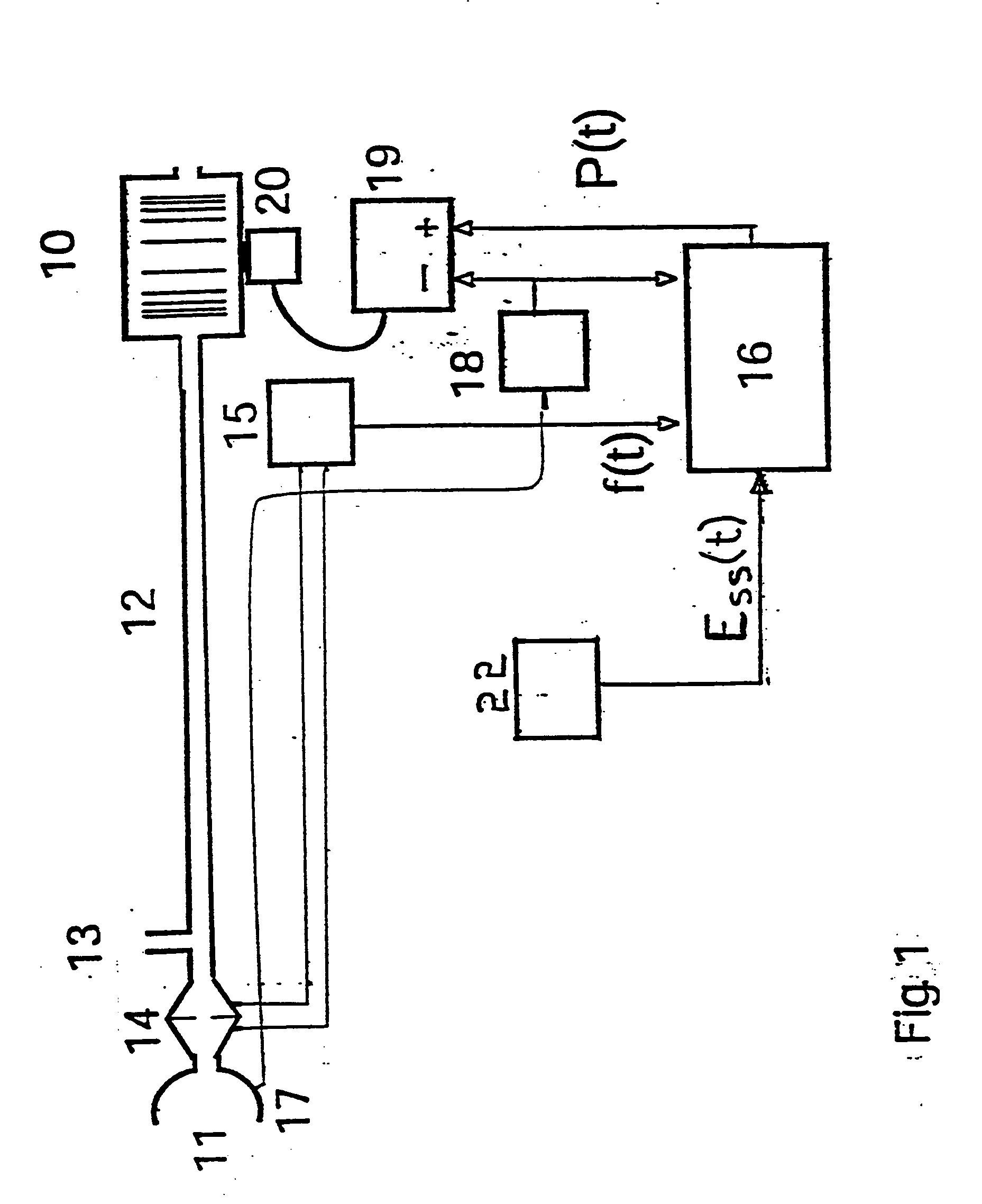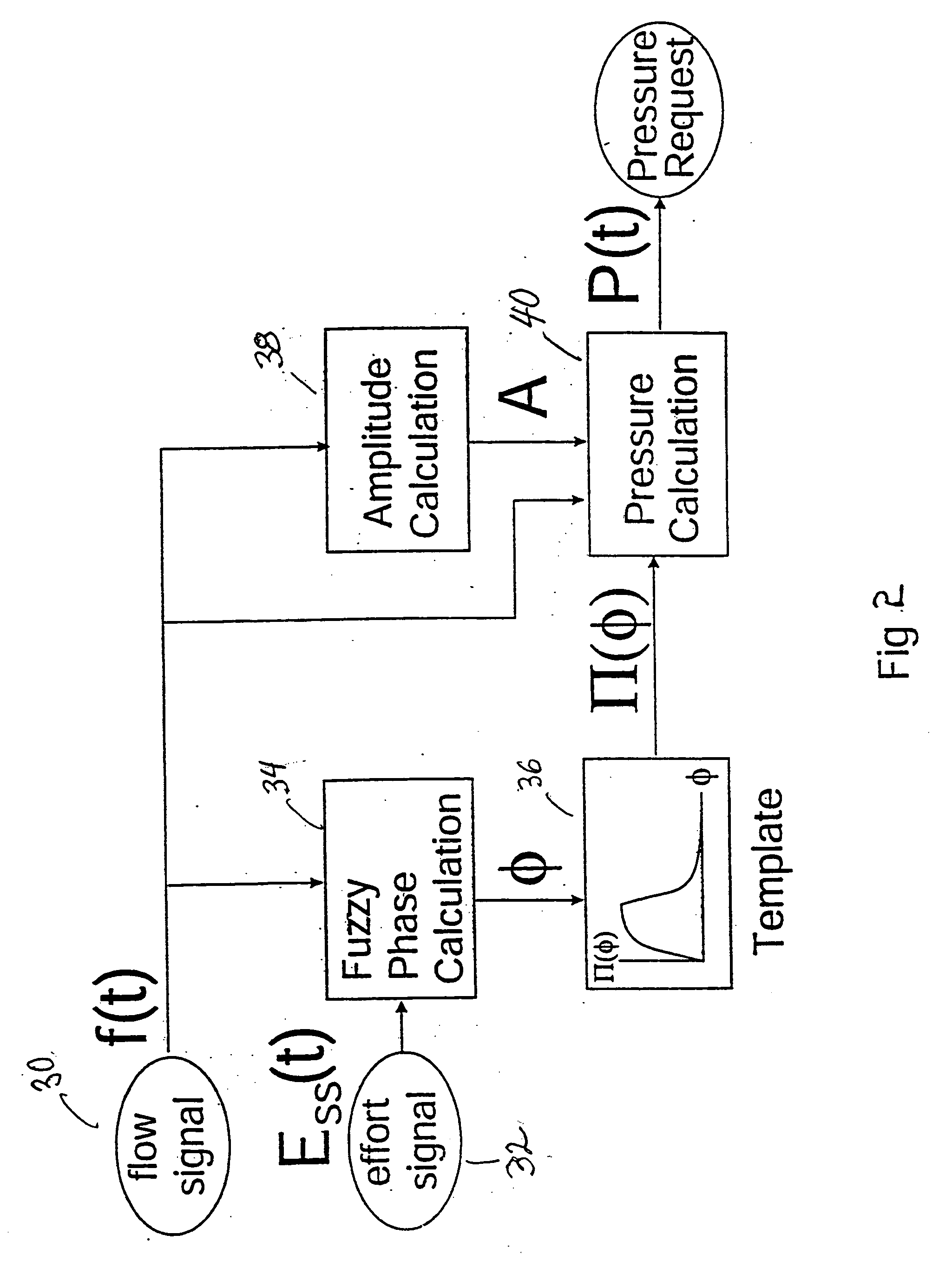Patient-ventilator synchronization using dual phase sensors
a technology of patient and ventilator, applied in the direction of valves, respirators, mechanical devices, etc., can solve the problems of not ensuring any particular ventilation, no guaranteed minimum ventilation, and little effort to keep the support precisely in phase with the patient's own respiratory efforts, so as to improve the determination of respiratory phase
- Summary
- Abstract
- Description
- Claims
- Application Information
AI Technical Summary
Benefits of technology
Problems solved by technology
Method used
Image
Examples
Embodiment Construction
[0035] A servo-controlled ventilator useful for accomplishing the present invention is shown in FIG. 1. A blower 10 supplies air under pressure via delivery tube 12 to a mask 11. Exhaust gas is vented via exhaust 13. Mask flow is measured using pneumotachograph 14 and differential pressure transducer 15 to derive flow signal f(t). Mask pressure is measured at pressure tap 17 using pressure transducer 18. Respiratory effort is measured by an effort sensor 22 to yield an effort signal Ess(t). Flow, effort and pressure signals are sent to microcontroller 16 which implements the processing shown in FIG. 2 to derive a pressure request signal P(t). The actual measured pressure and pressure request signal P(t) are fed to motor servo 19 which controls blower motor 20 to produce the desired instantaneous mask pressure. An example of this type of ventilator, without an effort sensor 22, is the subject of International Publication No. WO 98 / 12965, which is also disclosed in related U.S. applic...
PUM
 Login to View More
Login to View More Abstract
Description
Claims
Application Information
 Login to View More
Login to View More - R&D
- Intellectual Property
- Life Sciences
- Materials
- Tech Scout
- Unparalleled Data Quality
- Higher Quality Content
- 60% Fewer Hallucinations
Browse by: Latest US Patents, China's latest patents, Technical Efficacy Thesaurus, Application Domain, Technology Topic, Popular Technical Reports.
© 2025 PatSnap. All rights reserved.Legal|Privacy policy|Modern Slavery Act Transparency Statement|Sitemap|About US| Contact US: help@patsnap.com



